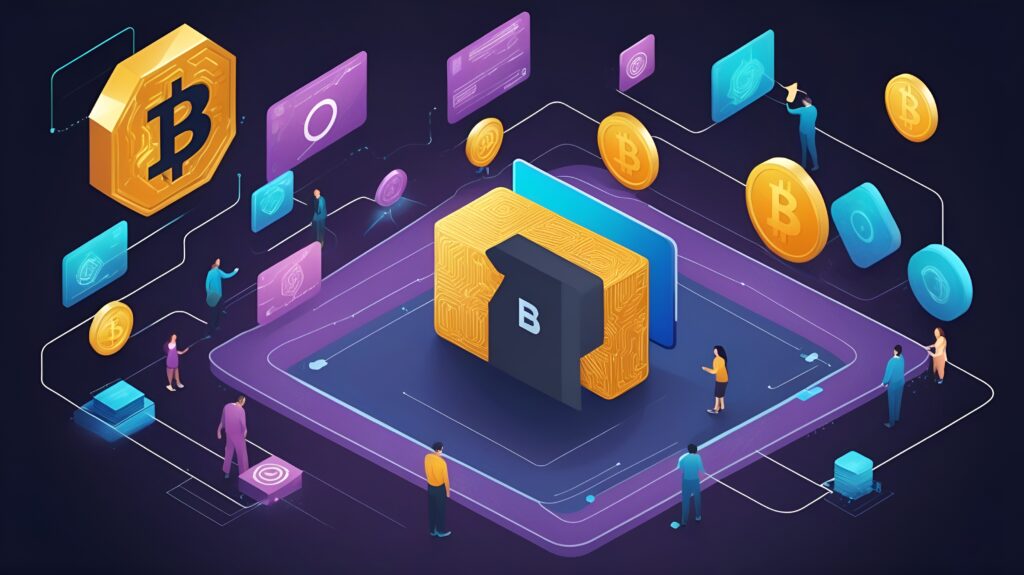Blockchain Beyond Cryptocurrency: Exploring New Frontiers
Blockchain is a technology that is mostly associated with the cryptocurrency ‘bitcoins’ and has the potential in it when it is applied in other areas. Being a technology enthusiast and blockchain researcher, I have had the luck to witness the marvels of blockchain that have not been limited to cryptocurrency, which is its most popular application. In this article, I will provide you with the broader view into the many and different purposes that blockchain technology is used in various spheres.
Understanding Blockchain’s Core Principles
Let us start by touching on the underpinnings of the blockchain before moving to the applications.
- Decentralization: Lack of central authority makes it impossible for hackers to break into the network
- Transparency: There is no single authority that verifies the transactions. All the transactions are visible to network participants.
- Immutability: Once recorded, the data will remain the same and cannot be reset.
- Security: Cryptographic techniques stand to enhance the trustworthiness of the data
Revolutionizing Supply Chain Management
The most potential part of blockchain technology is its application in the supply chain industry. According to my experience, It’s a technology that is capable of transforming the organization of companies from the origin to the consumer.
For example, the system Walmart has established on the blockchain allows them to keep track of the journey of food products. Through this approach, they can very quickly find the place that the toxic product comes from and follow it, this act could save lives and reduce the leftovers to rot.
Enhancing Healthcare Data Management
Blockchain, in the medical field, is a source of data that is both secure and accordant for patient management. A number of pilot studies that I have perused on blockchain and its potential in patients’ data and access to them. In this case, the blockchain technology allows patients to decide who can view their medical records while still making the process of documentation fast and more convenient than before.
Transforming Voting Systems
By ensuring the process of voting is secure, transparent and tamper-proof, the blockchain technology services could act as a game-changer in the revolutionization of voting systems. The experiences of the experiments I have been following in countries like Estonia, for instance, show that blockchain-based voting systems are undergoing a series of reforms that are expected to contribute to the turnout of voters and reduce election fraud.
Protecting Intellectual Property Rights

Artists and creators are some of the people who will benefit greatly from the use of blockchain technology to establish claims and supervise the use of the created materials. There have been platforms that use blockchain to enable musicians and writers to secure their work and to receive proper compensation.
Streamlining Real Estate Transactions
The adoption of blockchain technology in the real estate sector is a game-changer sector that brings about positive long-term impacts. Through a decentralized property registry, blockchain can make the transfer of property ownership a less complicated process, thus taking down the fraudulent activities, and also reducing the costs associated with transactions.
Enhancing Digital Identity Management
The blockchain system gives people the power of their own digital identity. I have researched and found projects whose aim is to let a person have a total control of his/her personal data. This will mean no more identity thefts and more privacy instead.
Improving Energy Distribution
Blockchain in the energy sector also does well in the promotion of transaction-less and peer-to-peer energy trading where homeowners with solar panels directly sell excess energy to their neighbors. This approach decentralizes the power distribution for a more efficient and lower-cost one.
Revolutionizing Education an Credentialing
How credentials from educational institutions are distributed, shared, and subsequently authenticated can, potentially, be reformed by the use of the blockchain technology. The use of systems that build a tamper-proof digital diploma or certificate to make it easier for the employers to check the qualifications of the applicants and students to share their achievements I have explored.
Enhancing Charitable Giving
Blockchain has the potential to make charitable donations more transparent by giving donors a way to trace how their contributions are specifically designated. This technology can bridge the trust issue between donors and organizations, which may then lead to an increment in charitable giving overall.
The Future of Blockchain
A good looking ahead shows us blockchain as a forgotten tool of today that could be applied in a number of different places and industries. Though not all the problems hindering full-scale blockchain implementation will be getting into the background, the values of such a network are far too great to dismiss entirely.
To sum up, blockchain beyond cryptocurrency technology has a far-reaching impact on many other areas that are not so connected to cryptocurrencies. The ability to offer secure, transparent, and efficient solving of challenging problems makes it a strong instrument for many industries. As we delve more into this technology, we should expect a cascade of see-more-blind-visualisers in the years to come.








